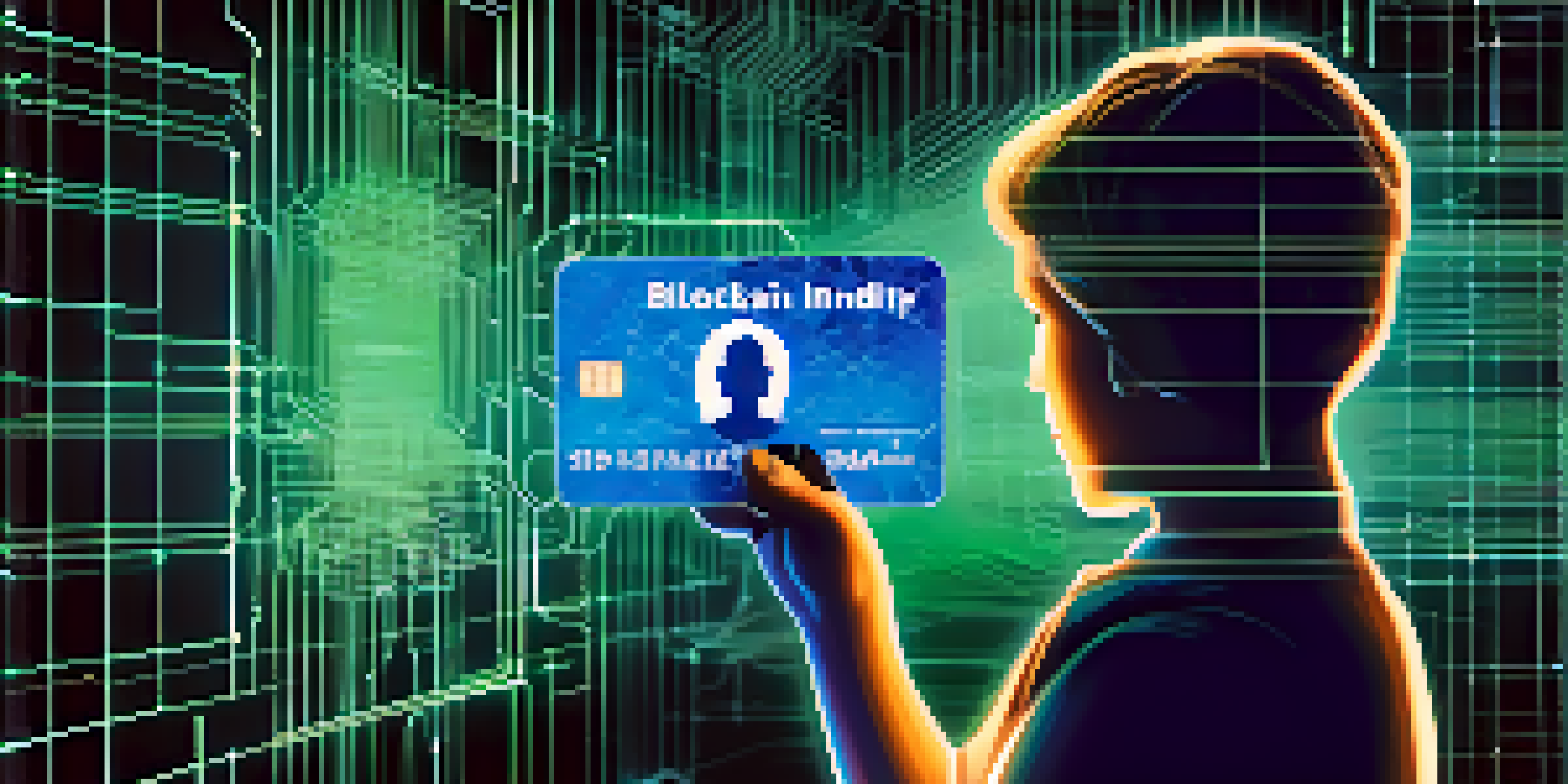Decentralized Identity: The Future of Digital Verification

Understanding Decentralized Identity and Its Importance
Decentralized identity is a new concept that shifts the control of personal information from centralized entities to individuals. Imagine having a digital ID that you own, similar to how you have a physical ID, but without the risk of it being lost or stolen. This form of identity allows users to verify who they are without having to share excessive personal data, creating an environment where privacy is prioritized. As our lives move more online, the importance of such identities grows, paving the way for a safer digital experience.
How Decentralized Identity Works in Practice
At its core, decentralized identity utilizes blockchain technology, which ensures that data is secure, transparent, and tamper-proof. Think of blockchain as a digital ledger that records transactions, making it nearly impossible to alter past entries. Users can create self-sovereign identities that are verified by trusted sources without the need for a central authority. This process not only enhances privacy but also simplifies verification, as it allows individuals to prove their identities without sharing sensitive personal information.
Decentralized Identity Empowers Users
This innovative approach allows individuals to control their personal information and verify their identity without excessive data sharing.
Benefits of Decentralized Identity for Users
One of the major benefits of decentralized identity is increased control over personal data. Users can decide what information to share and with whom, significantly reducing the risk of data breaches. Additionally, decentralized identities can streamline processes such as signing up for services or verifying age, making them more efficient. For instance, instead of filling out lengthy forms, users can simply share their verified credentials, saving time and hassle.
Challenges Facing Decentralized Identity Adoption
Despite its potential, decentralized identity faces several challenges that could hinder its widespread adoption. One significant hurdle is the need for robust infrastructure and standards to ensure compatibility among different systems. Additionally, there's a learning curve for both users and companies, as many are still unfamiliar with blockchain technology and its associated concepts. Overcoming these barriers will require collaboration among stakeholders to establish a framework that promotes usability and security.
Blockchain Ensures Secure Verification
Utilizing blockchain technology, decentralized identity creates a secure and tamper-proof system for identity verification.
Real-World Applications of Decentralized Identity
Decentralized identity is already making waves in various sectors, from finance to healthcare. For example, banks are exploring how it can simplify customer verification processes while enhancing security. In healthcare, patients could control their medical records and share them selectively with providers, improving privacy and trust. These applications illustrate the versatility of decentralized identity and its potential to revolutionize how we interact with services.
The Role of Governments and Regulations
Governments play a crucial role in the adoption of decentralized identity by establishing regulations that protect users while fostering innovation. Policymakers must find a balance between enabling technological advancements and ensuring that citizens' rights are protected. Initiatives that promote digital identity frameworks can encourage businesses to adopt decentralized solutions. As governments embrace these technologies, they can pave the way for a safer, more inclusive digital landscape.
Governments Shape the Future Landscape
The role of governments in establishing regulations is crucial for fostering innovation while protecting users' rights in decentralized identity adoption.
The Future of Decentralized Identity
Looking ahead, the future of decentralized identity seems promising, with many experts believing it will become the norm rather than the exception. As awareness grows and technology matures, more users and organizations will recognize the benefits of adopting such systems. This shift could lead to a significant reduction in identity theft and fraud, creating a more secure online environment. The journey toward widespread adoption may be complex, but the potential rewards are compelling.
Conclusion: Embracing Decentralized Identity
In conclusion, decentralized identity has the potential to transform digital verification by empowering users and enhancing privacy. As we continue to navigate the digital landscape, embracing this innovative approach could lead to a more secure and user-friendly online experience. For individuals, the promise of self-sovereign identities offers a new way to control personal information, while businesses can benefit from streamlined processes. Together, we can shape a future where identity verification is both secure and user-centric.